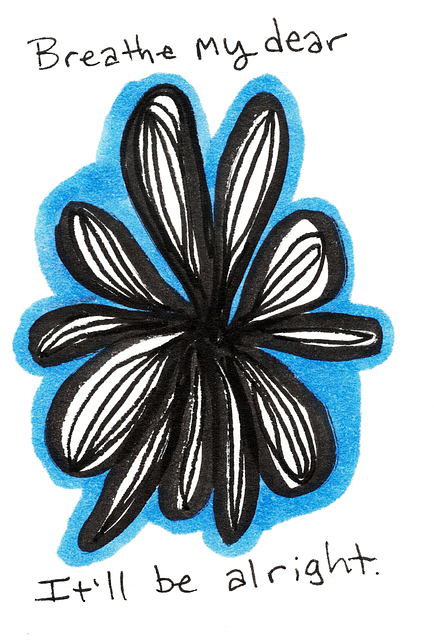Golden Russian Speaking Therapy is a specialized approach addressing the unique mental health challenges faced by the Russian-speaking community, including historical trauma and language barriers. By combining cultural sensitivity with tailored therapeutic strategies, this method improves access to care, reduces stigma, and promotes emotional healing while preserving cultural identity. Implementing Golden Russian Speaking Therapy enhances cultural competence in mental healthcare, creating inclusive environments that lead to better outcomes for diverse populations.
Cultural sensitivity is paramount in mental healthcare, especially when serving diverse communities. This article delves into the crucial topic of understanding and addressing cultural nuances, focusing on the Russian-speaking community’s unique mental health challenges. We explore the concept of Golden Russian Speaking Therapy, highlighting its benefits and best practices to enhance cultural competence. By implementing these strategies, mental health professionals can provide more effective and inclusive care for this population, fostering a supportive and healing environment.
- Understanding Cultural Sensitivity in Mental Healthcare
- The Russian-Speaking Community and Mental Health Challenges
- Implementing Golden Russian Speaking Therapy Practices
- Benefits and Best Practices for Cultural Competence
Understanding Cultural Sensitivity in Mental Healthcare

Cultural sensitivity in mental healthcare is an essential aspect that cannot be overlooked, especially when catering to diverse communities. It involves recognizing and appreciating the unique cultural beliefs, values, and practices that shape individuals’ experiences with mental health issues. By embracing cultural sensitivity, therapists create a safe and supportive environment, fostering better engagement and trust between client and caregiver. This approach is particularly significant in regions with diverse populations, such as the vibrant Russian-speaking community.
For example, Golden Russian Speaking Therapy offers a unique opportunity to bridge the gap between traditional mental healthcare practices and the cultural nuances of Russian-speaking individuals. By employing communication strategies tailored to this specific community, therapists can effectively reduce the stigma associated with mental illness and provide anxiety relief. These efforts not only enhance access to quality care but also promote understanding and acceptance within diverse communities, ensuring everyone receives compassionate and culturally competent support for their mental health journey.
The Russian-Speaking Community and Mental Health Challenges

The Russian-speaking community faces unique mental health challenges due to cultural and historical factors. Many individuals within this community have experienced trauma related to migration, political instability, or cultural disconnection, which can significantly impact their psychological well-being. Language barriers further complicate matters, as accurate diagnosis and effective treatment require a shared understanding. This is where Golden Russian Speaking Therapy steps in, emphasizing the importance of cultural sensitivity in mental healthcare practice.
By incorporating approaches tailored to the specific needs and experiences of Russian-speaking individuals, therapists can facilitate more meaningful Emotional Healing Processes. This involves learning about their cultural backgrounds, traditional coping mechanisms, and family dynamics. Building resilience is another key aspect, empowering clients to navigate mental health challenges while preserving their cultural identity. Cultural sensitivity ensures that therapy becomes a safe space where individuals feel understood and supported, ultimately fostering positive outcomes in their journey towards recovery.
Implementing Golden Russian Speaking Therapy Practices

Implementing Golden Russian Speaking Therapy practices is a significant step towards enhancing cultural sensitivity in mental healthcare. This therapeutic approach recognizes and respects the unique cultural background and linguistic needs of Russian-speaking individuals, ensuring they receive effective and tailored support. By incorporating Golden Russian Speaking Therapy, mental health professionals can foster a safe and inclusive environment, addressing the specific emotional healing processes that may differ across cultures.
Such practices not only facilitate open communication but also play a crucial role in preventing burnout among healthcare providers by reducing barriers to care. In light of growing Mental Health Awareness, it is essential to embrace these cultural considerations, enabling more accurate diagnoses and personalized treatment plans. This approach ultimately strengthens the bond between patients and their caregivers, leading to improved outcomes.
Benefits and Best Practices for Cultural Competence

Cultural sensitivity is a cornerstone of effective mental healthcare practice, fostering trust and improving outcomes for diverse populations. When therapists embrace cultural competence, they create an environment where clients feel seen, heard, and understood. This is particularly significant in communities with distinct cultural backgrounds, such as the vibrant Russian-speaking community, where traditional healing practices and family dynamics may differ from mainstream norms.
Best practices for cultivating cultural sensitivity include Social Skills Training to bridge any communication gaps, implementing Communication Strategies tailored to individual needs, and encouraging Self-Care Practices that respect and integrate cultural beliefs. Golden Russian-speaking therapy, for instance, can offer a safe space for clients to express themselves in their native language while exploring therapeutic techniques that align with their unique cultural perspectives. This holistic approach not only enhances the quality of care but also ensures that mental healthcare remains accessible and culturally responsive.
Cultural sensitivity is paramount in mental healthcare, especially when serving diverse communities like the Russian-speaking population. By implementing Golden Russian Speaking Therapy practices, we can bridge cultural gaps and improve access to quality care. This approach not only enhances therapeutic outcomes but also fosters a sense of trust and understanding, ensuring that every individual receives respectful and effective treatment tailored to their unique cultural background. Embracing cultural competence is a step towards creating an inclusive healthcare system that benefits all.














